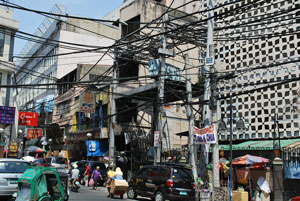Moving to Manila, Philippines
Once you have decided to relocate to Manila, you have to be ready to embrace the city’s busy streets and fast-paced life. You not only have to secure valid documents such as visas and permits for yourself but also for your dependents. Many expats find their way to Manila to seek employment opportunities. However, finding a job in Manila can tough because, under the Philippine labour law, a company can only hire an expat if they can present proof that the number of locals is not enough to fill the role.

Here are some of the important things that you need to secure to ensure a successful relocation:
Pet Relocation
Pets entering Manila should have a microchip as a form of identification. Owners should be able to secure the animal’s health certificate issued by a licensed veterinarian and bears the stamp of the Ministry of Foreign Affairs from your home country 30 days before arrival in Manila. You also need to present the Health Certificate to any Philippine Consular Office three weeks before the shipment of your pet to obtain a Certification of Authenticity.
The pet should also have a valid Import Permit that you can file in two different ways: direct application to the Bureau of Animal Industry (BAI) or by presenting the animal’s Health Certificate to a Quarantine Officer upon entering Manila. The fee for the Import Permit costs Php 200.00 or roughly €10.00.
Visa Categories
Several types of visas are required when entering the Manila. The Bureau of Immigration is the government agency that issues visas to foreign nationals. Whether you will only visit for a short period or on an assignment for a few years, it is important that you learn about the different visa categories.
Tourist Visa
A tourist visa is issued to those who will be staying in the country for no more than thirty days. There is also the temporary visitor’s visa which can be used for either of the two purposes: single entry (three months) and multiple entries (six months or one year). The application process takes about ten business days upon completion of all requirements such as:
- Travel document or Original Passport which is valid for at least six months after departure date from the Philippines
- Fully accomplished Visa Application Form
- Copy of your travel itinerary or flight details in the country
- Proof of payment for the application
Work Visa
Also known as the 9 (G) permit is required for all foreign nationals who are planning to work in Manila and should be obtained before the start of employment. In addition to the work visa, expats should also apply for the Alien Employment Permit (AEP) from the Department of Labour and Employment which will show that you are eligible to be employed in Manila. AEP is valid for one year and is a mandatory requirement by the Bureau of Immigration for those applying for the 9 (G) visa. Application process is approximately 4-5 business days and the requirements are:
- Petition letter from your employer addressed to the Secretary of Labour
- Duly signed and accomplished application form
- Copy of your Curriculum Vitae
- Alien Employment Permit (AEP)
Student Visa
The student visa is only issued to foreign students who are no less than 18 years old and whose purpose is solely for taking up a course in any higher institution such as universities, seminaries or colleges with the approval of the Commissioner of Immigration. You also need to provide proof that you will have sufficient means of financial support while you are in the Philippines. The average processing time for a student visa is two months after submission of all necessary documents such as:
- Two accomplished application forms
- Two photographs
- Original and one copy of your birth certificate with authentication from the Philippine Embassy
- Original and one copy each of documents such as Certificate of Good Moral Character, Police Certificate, medical examinations and diploma for those who are applying for graduate studies (all must be authenticated by the Embassy of the Philippines)
Spouse or Dependent Visa
Your spouse and children who are under 21 years of age and unmarried are eligible for the Immigrant Visa. If your spouse is planning to seek employment, then she/he must also apply for a separate work permit. Your dependent or spouse should secure important documents and some of there are:
- Passport that is valid for at least six months to one year
- Two duly accomplished application forms
- Passport sized photos
- Physical and medical exam reports
- Proof of payment of the application fees
Know more about Manila, Philippines with our relocation guide for expatriates:
This relocation guide is provided by http://www.expatfinder.com, copyright © 2016 Interexpat Pte. Ltd. All rights reserved. Neither Interexpat nor S.A.S. ACS can be held liable for any errors or omissions, or any loss, damage that may occur as a result of this information. This information does not constitute advice.

